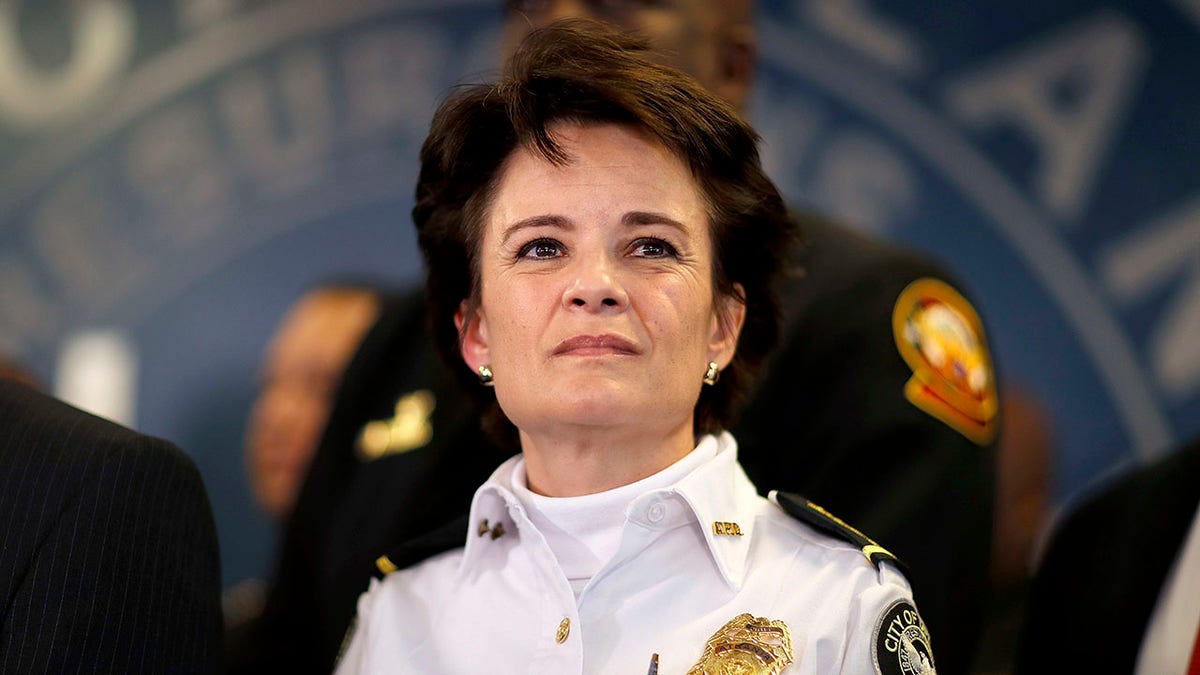Attorney for Rayshard Brook's family says use of Tasers shouldn't be taken away
Brooks family attorney L. Chris Stewart speaks out on the family's heartbreak on 'America's Newsroom.'
L. Chris Stewart, an attorney for the family of Rayshard Brooks, said Tuesday that Brooks had not brandished Atlanta Police Officer Garrett Rolfe's Taser at him in the moments before he was shot and killed.
In an interview on "America's Newsroom" with hosts Sandra Smith and Ed Henry, Stewart explained that in conversations with 27-year-old Brooks' wife Tomika Miller, she had recalled the two of them obsessively watching the video of the May 25 death of George Floyd.
TRUMP TO SIGN EXECUTIVE ORDER ON POLICING TO 'BUILD TRUST' IN LAW ENFORCEMENT
"Definitely, law enforcement always needs to be able to defend themselves and we don't know why the confrontation began," Stewart remarked. "What we do know is talking to his wife – he and his wife watched the George Floyd video constantly, just like all of us in this country. And, discussed it and were scared about it."
Stewart suggested that perhaps the video of Floyd's death had "triggered" something in Brooks.
"And, you know, George Floyd was in handcuffs and was killed," he noted. "So, I don't know if that triggered him: ‘I'm about to get put in handcuffs and be helpless and I’d rather try and get away then be handcuffed and die like George Floyd did.’"
When Atlanta Police found Brooks sleeping in the drive-thru of a Wendy's parking lot, he was already highly intoxicated and a body camera recorded a digital readout of 0.108 — higher than the 0.08-gram blood alcohol content considered illegal to drive in Georgia.
Brooks, a father of four, on Friday had celebrated the eighth birthday of one of his daughters.
Video released by Atlanta Police showed Brooks chatting cooperatively with the officers for more than 30 minutes before he failed the breath test and the officers began to handcuff him.
According to Stewart, once Brooks grabbed Rolfe's Taser he was "a distance away" and Rolfe was "already grabbing for his gun before the Taser was even pointed in his direction," contradictory to Rolfe's account.
In the short chase that followed, three gunshots are heard in the video.

In this Thursday, Jan. 4, 2018, file photo, Atlanta Police Chief Erika Shields attends a news conference in Atlanta. On Saturday, June 13, 2020, Atlanta Mayor Keisha Lance Bottoms announced that Shields is resigning after an officer fatally shot a man who snatched an officer’s Taser and ran after a struggle in a restaurant parking lot. (AP Photo/David Goldman)
Less than 24 hours later, Atlanta Police Chief Erika Shields stepped down from her job.
On Tuesday afternoon, President Trump signed an executive order on law enforcement reform aimed at regulating law enforcement's use of force practices, incentivizing police departments to deploy non-police experts on issues like mental health, homelessness, and addiction, and tracking repeated complaints against officers.
The president also addressed efforts in Congress to pass legislation on criminal justice reform — progress that has already hit a couple of partisan snags.
Stewart urged that in these changes, "we can't wreck the entire use of Tasers by police officers."
"They’re used on people constantly. If every time they use it, it’s now looked at as a possibly deadly situation, and that’s going to destroy the use of Tasers. They are a non-deadly weapon that officers need to use because it's not a threat to your life," he told the "Newsroom" hosts.
Stewart said that while there is "just a lot of pain" within the Brooks' family, they are waiting to see what the Fulton County District Attorney decides.
"I don't lose faith in the DAs. I don't lose faith in all police officers from this incident. I just want a better way of policing," he concluded, "which shouldn't be that hard."
According to a Reuters analysis published Monday, black Americans make up a disproportionate share of those killed when shocked with a Taser.
CLICK HERE FOR THE FOX NEWS APP
Tasers deliver a pulsed electrical current meant to give police time to restrain a subject. About 94 percent of America's roughly 18,000 police agencies now issue Tasers.
In 1,081 cases in which people died after being shocked by police with a Taser through the end of 2018, at least 32 percent of those who died were black and at least 29 percent were white.











































